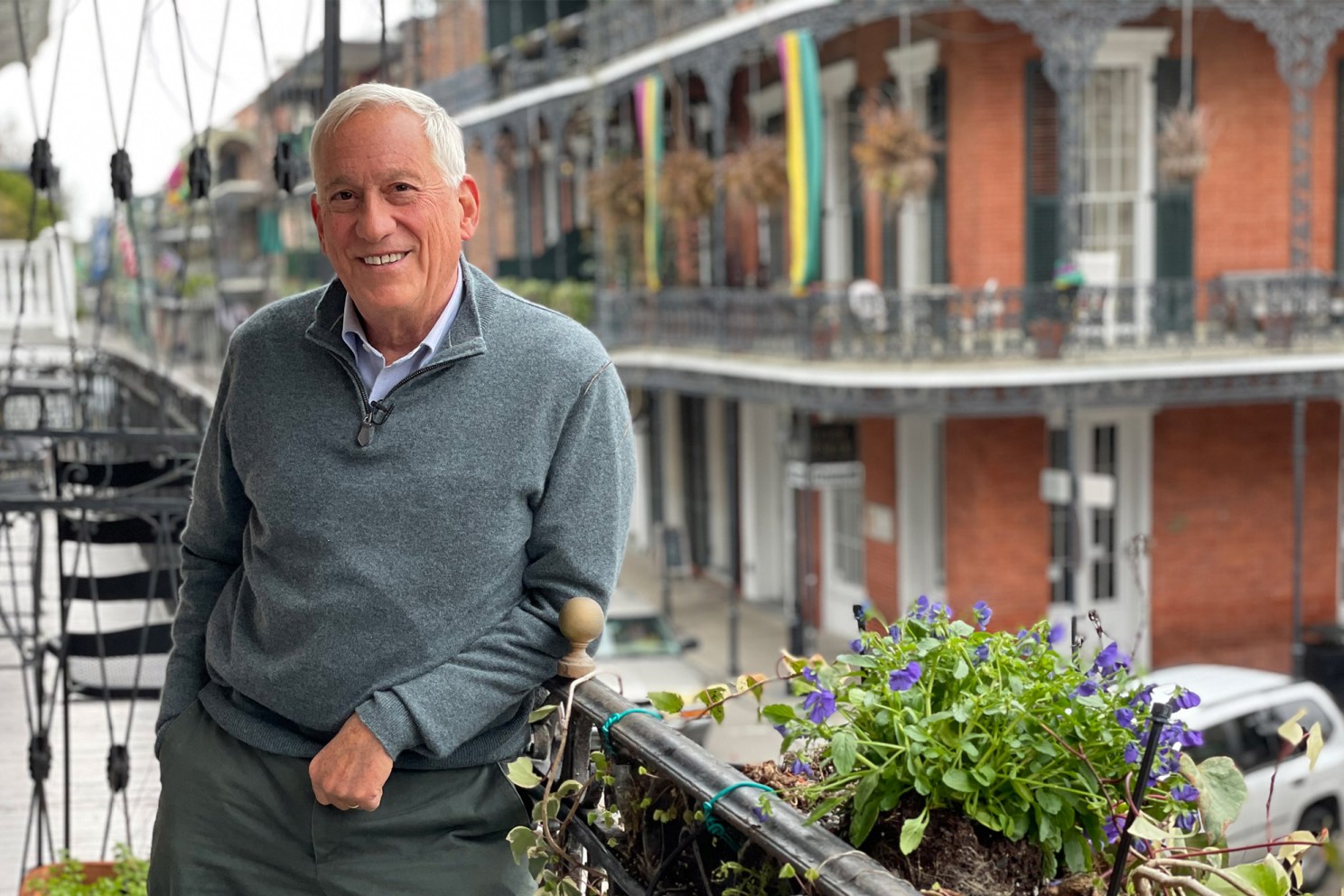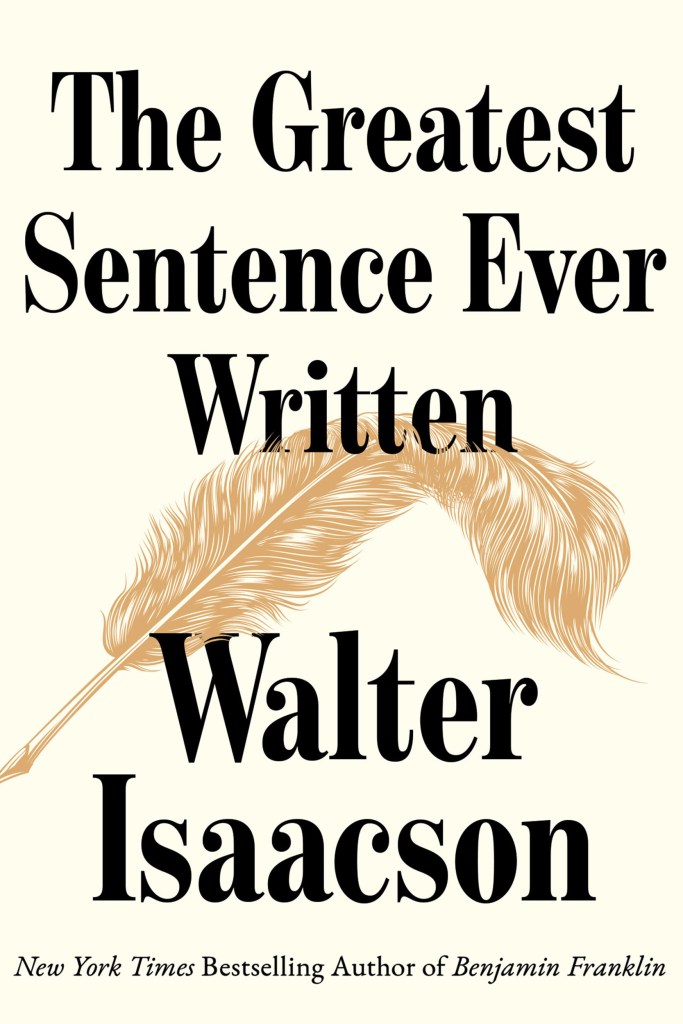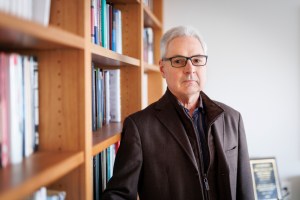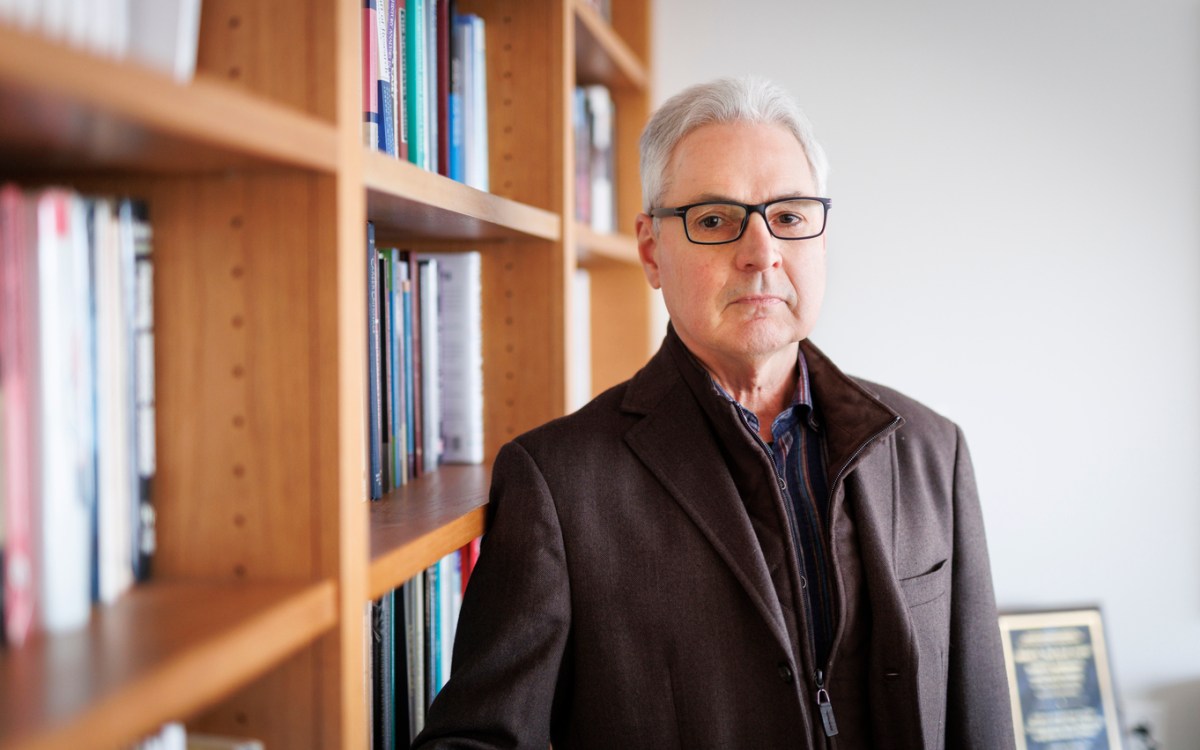Our self-evident truths

Courtesy of Tulane University
New book takes as focus ‘greatest sentence ever written,’ how it may help a riven nation recall common values
On July 4, 1776, a band of revolutionaries that included Thomas Jefferson, Benjamin Franklin, and John Adams announced the birth of a new nation in a bold assertion of national identity known as the Declaration of Independence.
Walter Isaacson’s new book, “The Greatest Sentence Ever Written,” takes as its focal point the document’s second line: “We hold these truths to be self-evident, that all men are created equal, that they are endowed by their Creator with certain unalienable Rights, that among these are Life, Liberty and the Pursuit of Happiness.”
In this edited conversation, Isaacson ’74, a journalist and author of best-selling biographies of Benjamin Franklin (2003) and Steve Jobs (2011), digs into the story behind the drafting of the sentence, explains why he believes it is so foundational, and argues that a re-examination of the ideas could remind our riven nation of the common values to which we aspire.
What makes this particular sentence “the greatest”?
I think it’s a sentence that gives the mission statement for what our country can be.
We’re about to enter our 250th birthday, and we’re so polarized that we’re not in the mood for a birthday party. And I think it’s important for people to focus on what’s the mission of our country, what common values do we share, and maybe that’ll lower some of the temperature at least for a year, so that we can have a 250th celebration.
I also think there’s a philosophical depth and beauty to the “We hold these truths to be self-evident” sentence — every word of it.
I go back to my Harvard days when political philosophers John Rawls and Robert Nozick taught John Locke and Thomas Hobbes and Jean-Jacques Rousseau, and what do we mean by “we”? What is a social contract? What is common ground, and how did the commons develop from private property?
I just felt going back to those concepts would be a way for people to have a slightly deeper appreciation for a sentence most of us know almost by heart, but we haven’t reflected on what each word means and how we can live up to the aspiration.

The drafting committee made a number of important edits to the original text. Which ones were particularly meaningful?
Jefferson writes the first draft. He sends it over to Benjamin Franklin on Market Street in Philadelphia, and said, “Would the good Dr. Franklin, with his great wisdom, help improve this?”
Jefferson had started that second sentence by saying, “We hold these truths to be sacred.” And you see on that draft, the dark black slashes that Benjamin Franklin used when he was editing documents, and he changes “sacred” to “self-evident.” They were trying to create a new type of nation in which our rights were based on rationality, not on the dictates or dogma of a religion.
But then, Jefferson says that they’re “endowed with certain rights,” and John Adams puts “endowed by their Creator.” So, you can see just in those edits, our founders balancing the role of divine providence and the role of rationality in creating our rights.
I also went back to figure out what did Franklin mean by “self-evident”? You think, “Maybe that’s just a fancy way to say obvious?” No. Franklin had just been staying in Scotland at the home of David Hume, who had come up with the concept of certain truths that were true by reason or by definition, like “all bachelors are unmarried,” and those self-evident truths he built a philosophy on by contrasting them with synthetic truths, like “Philadelphia is bigger than Charleston.”
And so, you can see when they say people are equal, they don’t mean that they surveyed different people and said, “They’re all equal.” They say, it’s self-evident they’re equal because of the way we enter the social contract. Those were the things I was trying to explore.
I think it gives us some sense of common values that may make our discussion of history a little bit less disputatious, to use Franklin’s word.
The phrase “all men are created equal” referred only to land-owning white men. Indeed, 41 of 56 of the signers enslaved people. How aware were the signers of the contradiction between this lofty statement and their own reality?
They were very aware of the contradiction, even Jefferson, who enslaved more than 400 people and didn’t free most of his slaves even when he died.
But I think they understood the sentence would not only endure, it would grow. It was an aspirational sentence. And of course, the horrible contradiction in the sentence is that Jefferson can write “all men are created equal” and still be an enslaver.
But that sentence does set in motion 250 years of an unfinished project to make the ideals of that sentence real.
That unfinished project, four score and seven years later, is Lincoln at the cemetery at Gettysburg quoting that sentence and saying, “dedicated to the proposition that all men are created equal.” So that’s part of the process — the Civil War dead all the way through the Civil Rights movements, including women and others, in that phrase.
Jefferson in particular, but also Franklin, think about that sentence as something that has to be made true. It just doesn’t become true on its own.
Franklin, who had once owned two or three slaves when he was a young printer in Philadelphia, becomes appalled at the notion of slavery and becomes, near the end of his life, the president of the Society for the Abolition of Slavery in Pennsylvania.
So that moral growth you see in Franklin is in some way analogous to our nation’s moral growth, in fits and starts, in the subsequent 249 years.
Did the founders anticipate that the guarantees of “life, liberty and the pursuit of happiness” might someday be interpreted to include issues that they could not foresee, such as same-sex marriage or universal suffrage?
Yes. One of the things you see, both in the Declaration and 11 years later in the Constitution, is certain phrases that have the potential to grow and gain meanings as society changes.
The notion of life, liberty, and the pursuit of happiness: In the book, I talk about how that defines common ground and the American Dream, which were based on individual rights in the founding of our country.
That sentence talks about the nation being individuals who come together, but it also talks about what we put into the commons. That includes the pursuit of happiness, which in their minds also meant a place of opportunity where each generation could do better.
They’re saying, “What do we put in the commons? What type of services do we put in common — police, health care, schools, defense, fire corps?”
That whole concept of life, liberty, and the pursuit of happiness is how do we both give rights to the individual and respect the type of things that have to be shared in common, and how that together allows each generation the chance to succeed.
With the nation’s political climate so polarized, you write, “One way to restore stability to our politics is to look at issues through the two ideals at the heart of the Declaration’s key sentence, common ground in the pursuit of the American dream.” What do you mean by that?
We get so polarized in our fight, say, over healthcare in the past month or so, that we have to remember that it’s simply about a balance of what goods and services should be totally in the realm of the private individual, and what should be shared in commons.
Benjamin Franklin serves as a guide to this because on healthcare, he says let’s have a public-private partnership for a hospital that will serve all the people of Philadelphia. They decide whether there should be a widows and orphans fund in Philadelphia. They decide that whether the firefighting corps should be paid for by individuals, and only those people should get fire protection, or whether it should be some service that is shared in commons.
They create a balance. Some things get shared in Commons and some things remain or get put in the private realm. Those are the type of fights we’re having now.
But if we looked at it through the notion of the importance of common ground, why our common ground and common shared services give everybody a stake in the health of our democracy and give everybody a foundation for opportunity, for them and their children, then I think we can say these aren’t existential arguments. They’re just a question of getting the balance right.
And that’s what the founders, especially Franklin and Jefferson, who were scientists, understood by studying Newton, by helping understand the flow of electricity, the notion of balances, pluses and minuses, equilibrium and contending forces. And if we could just get back to that sense of what is our common ground, then maybe some of these fights wouldn’t be so bitter.




